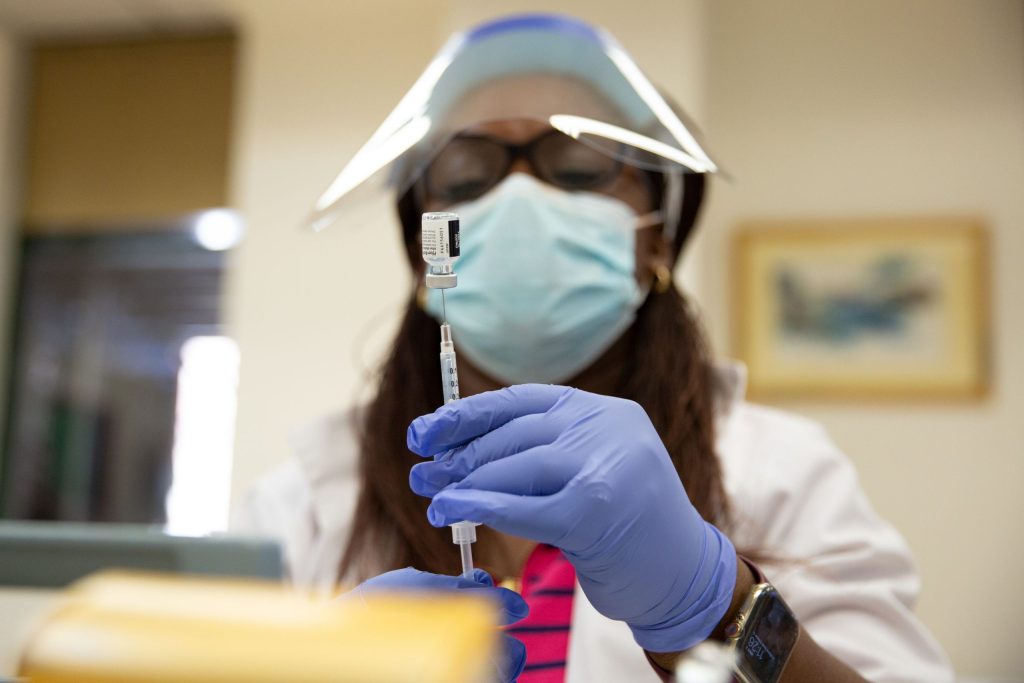This story was originally published by Healthbeat. Sign up for their public health newsletters at healthbeat.org/newsletters.
The respiratory season has continued to pick up in New York and nationally. We now have data from the week of Thanksgiving, so it’s time for another State of Affairs to kick this week off.
RSV and flu: increasing
Respiratory Syncytial Virus is on the rise and is affecting a lot of young children. Recent data from laboratories across New York show that positive RSV tests are increasing. In New York City, RSV cases are significantly rising — there was a 22% increase in positive RSV tests during the week ending Nov. 30, compared to the week prior.
We are seeing the effects of increasing RSV activity in hospitals — national RSV hospitalization rates in children have shot up in the past couple of weeks.

Children are being hit hardest by respiratory viruses, especially RSV. National Centers for Disease Control and Prevention data show that children aged 4 and under currently account for 8% of emergency department visits for COVID-19, flu, or RSV, while adults aged 65 and older account for just 1.4%.
The good news is that there are now two key ways to protect babies against RSV:
- An RSV vaccine that pregnant women can get. The timing of this vaccine is very important. Time is needed for antibodies to develop, cross the placenta, and protect the infant during the RSV season over the winter. That is why it’s given between weeks 32 and 36 of pregnancy, from September through January. With this timing, the protection passed to the baby will last for their first RSV season.
- Monoclonal antibodies for infants. For pregnant women who miss the RSV vaccination window, infants can receive RSV monoclonal antibodies (named nirsevimab) just before or at the start of the RSV season. This is an effective option — research has shown that nirsevimab is 90% effective against RSV-associated hospitalization in infants during their first RSV season.
RSV vaccines are also recommended for all adults ages 75 and older and adults ages 60–74 who are at increased risk for severe RSV.
The flu is also increasing in New York — the number of cases in the state increased by 47% during the week ending Nov. 30, compared to the week prior. The biggest increases are happening in New York City and the surrounding metro area, but hospitalizations are increasing across the state.

Covid-19: minimal but increasing
Covid-19 levels are minimal in New York, but we are starting to see some signals that transmission is increasing.
Covid-19 is picking up in New York City, where wastewater shows that levels are increasing.

Fortunately, hospitalizations for Covid-19 among New Yorkers are low, especially among those over the age of 65, who have the highest risk.
This year’s Covid-19 season is looking a bit different from last year’s. In 2023, Covid-19 hospitalizations in New York started to rise as early as mid-November. However, this year Covid-19 activity is beginning later. One key factor may be the large summer wave that occurred this past July and August. With so many people infected over the summer, community immunity has likely remained higher into the fall, delaying the start of this winter’s Covid-19 season. It’s been a welcome reprieve.
It’s easy to find a place to get vaccinated
I was able to make a same-day appointment at my local pharmacy for Covid-19 and flu vaccines. If you haven’t had a chance to get your vaccines (I get it — the holidays are crazy), the time is now.
- We shared a lot of information on how to get vaccines in New York City and the rest of the state in our holiday respiratory virus post, available here.
Bottom line
Respiratory viruses (especially RSV) are picking up, it’s not too late to get vaccinated, and there are many people out there working hard to keep us healthy!
Love,
Your Local Epidemiologist
Dr. Marisa Donnelly, a senior epidemiologist with wastewater monitoring company Biobot Analytics, has worked in applied public health for over a decade, specializing in infectious diseases and emerging public health threats. Marisa can be reached at mdonnelly@healthbeat.org.
Healthbeat is a nonprofit news platform reporting on public health from Civic News Company and KFF Health News.

